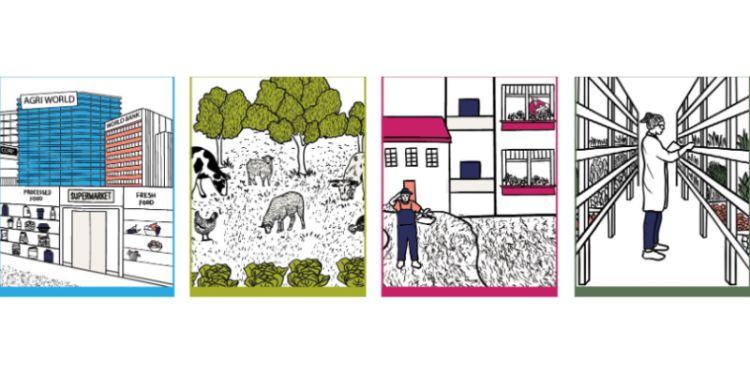What could the UK agri-food system look like in 2050?

A group of researchers, including Professors Tim Benton and Stefan Kepinski in the School of Biology, have launched a report to support decision makers plan for net zero.
The report, which has produced by the Agri Food for Net Zero Network (AFN Network+), describes four possible future scenarios, and what policy planning and research will be needed for each one, to move the agri-food system towards a net zero UK.
The UK Government does not currently have a plan for how the agri-food system will contribute to its ‘net zero by 2050’ commitment, even though the sector accounts for around a quarter of the UK's greenhouse gas emissions. There is also no consensus around a vision for a sustainable UK agri-food system.
The rapid pace of global change and recent geopolitical instability pose challenges for policy makers trying to plan for the future. Yet the research needs of the different future worlds requires careful but urgent thought, since innovations can take decades to deploy at scale.
Scenarios help us to think about possible challenges and opportunities ahead and provide a route for planning and decision-making. The scenarios should not be taken as the future we think will happen, should happen, or that we should choose from. Rather, they provide a framework to help us think about what research might be needed to support a sustainable future food system.
How the scenarios were built
The four ‘plausible futures’ were developed by considering how the world could change in terms of geopolitics and stability, markets and social change. In all four scenarios, the UK reaches net zero emissions by 2050, but in different contexts, via different pathways, and with different implications.
The scenarios were built over several months of workshops and events with agri-food specialists and stakeholders from within the AFN Network+, as well as about 40 other individuals from a range of organisations including UK universities and research institutes, national and local farming groups, central government departments, environmental organisations and international financial services.
The scenarios were built by considering key uncertainties, which centred on three questions:
- Geopolitics and stability: Will the world be more volatile, conflicted and contested or return to cooperative, rules-based and calmer?
- Economics: Will we rediscover open, global markets and drive back towards globalisation, or move towards more regionalised, regulated and securitized markets?
- Demand: How will demand for the goods from land evolve? Will it grow unfettered, or will it decouple from resource demand, through price signals and sector or system innovation?




